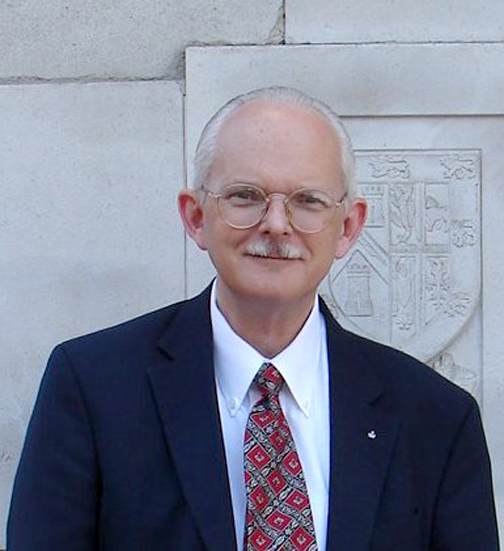Q: I have a dear, dear friend who is a long-time smoker. We’re both in our mid-50s. I’ve tried various ways of speaking to her about stopping smoking. I also have another good friend who died from emphysema. I know a person has to want to quit, but my friend doesn’t seem at all interested.
Do you have any suggestions? ~Love My Friend
Dear Love My Friend,
Why don’t you say something like, “If you don’t quit smoking, I’m going to stomp your butt!”?
Seriously, I have heard that quitting smoking is the hardest addiction to overcome. I seem to remember that back in the Reagan years we had a surgeon general who said the nicotine habit is every bit as tough to kick as the heroin habit.
I don’t really have an answer. Addiction is tough and addicts will choose their habit over you, even if they love you! Just yesterday I bumped into a 71-year-old man who smoked and his rationalization was that his smoking “didn’t interfere with his walk with the Lord.” (Some ultra-religious people talk like that!) But this guy, a born again Christian, as far as I could tell had rationalized his addiction into saying what he said. (I didn’t argue with him. I just nodded, and yearned for my time with him to be over!) This guy even quoted Scripture to me about the body being the temple of the Holy Spirit! And yet he continues to smoke.
Addicts come up with all sorts of rationalizations. There is a saying that when the student is ready, the teacher appears. Your friend is not going to quit until she wants to. So save your breath (“ruach” in Hebrew,”spiritus” in Latin), the same holy breath that God breathed into the first human, according to Genesis. And let’s hope that teacher (you or somebody else) appears in the nick of time!

The Rev. C. L. “Skip” Lindeman
lindemanskip@yahoo.com
Dear Love My Friend,
You have tried various ways of speaking to her about stopping smoking. Longtime smokers are so entrenched – physically by the need for nicotine, physically again for the habit of, the “go to” grab the cigarette option. I have heard that quitting smoking is even harder than stopping the use of heroin.
It is so difficult to watch a person you care for self-destructing before your eyes. It is awful to witness their declining health and their rising symptoms due to forces that, if the friend was willing to wrestle with all the challenges of quitting, she could mitigate the rising symptoms or avoid the coming disease altogether.
I don’t know what keeps your friend smoking when it has been clearly proven that smoking causes cancer. They even write it on the packs they sell.
You cited the truth when you said that if a person quits that means they have a great desire to do so. Maybe you can explore with your friend what are all the reasons she likes to smoke – more than life itself? Your friend needs to find out why she is so committed to smoking that she is willing to throw the knowledge of the self-destruction she invites out the window.
Please approach these questions with love. It might surprise you to find out why she is so committed to smoking.
May your friend’s desire for life and health override whatever her strong commitment to smoking turns out to be.

Rabbi Janet Bieber
jbieber1155@aol.com
Q: We were so excited when we learned we were expecting twins. All of the check-ups indicated everything was all right but at the beginning of the ninth month we were told one of the babies wasn’t doing well and that an immediate Caesarean section was necessary. Unfortunately, one of the twins died.
It’s difficult to try to explain the grief we’re going through. Praise God our little girl is in good health. These were our first children and getting over losing the other little one is so very difficult. We named our little boy Joseph after his paternal grandfather and had a Christian service for him. Our question is: How long does grief take? This happened over a year ago but when the subject comes up between us, we both cry. ~ Grieving Parents
Dear Grieving Parents,
My heart grieves with you. A loss, like yours, creates a huge void.
“Grief never ends; but it changes. It’s a passage, not a place to stay. Grief is not a sign of weakness, nor a lack of faith. It is the price of love.” (Queen Elizabeth 1st) This sums up the journey you are walking.
There is no timetable for our grieving to be “over.” Although some people may say, or we may think, it’s time to “move on” after about a year or so, the journey is individualized. Each of us grieves in our own way, according to our own personality and style, taking the time we need to heal and move forward. The timeline may even be different for both you and your spouse.
What is critically important is to walk this journey with healthy grieving. It means feeling and not trying to minimize the emotions or the significance of the loss. With the death of a child, the natural order of life is eternally interrupted. The impact is even deeper as a parent is not supposed to outlive their child. It’s important to grieve all the hopes and dreams you had for that child as he was to grow up. It’s normal! As your child was a twin, you will most likely remember Joseph with each birthday your little girl celebrates, with each milestone in her life (first words, first tooth, starting school, graduation, marriage, etc.). It’s natural to remember.
There are many other resources that you can take advantage of. You might join a Christian grief group for parents who have lost children or seek out a good grief counselor. Many books have been written about the loss of children. One that I have read and many have found helpful is a book called “I’ll Hold You in Heaven” (Jack W. Hayford). It specifically deals with infant death and the hope that God can give us.
God promises to give us joy instead of mourning and praise instead of despair (Isiah 61:3). May you find deep joy and peace as you press into Him for healing of your hearts.
Walking the journey with you, in prayer,

Pastor Dabney Beck
timanddabney@gmail.com
Dear Grieving Parents,
I can only imagine the suffering, sorrow, sad disappointment and the deep sense of loss of your child holds for both you and your husband. I can also well understand your desire to move past your grief and the pain you both feel, whenever you are reminded of what has happened. The short answer to your question “How long does grief take?” is that the healing comes in its own time. It is true enough in its own right. But not very helpful as an explanation of just how to free and release ourselves from over whelming, crippling and painful emotions tied to such a loss.
I think the more honest and helpful response is to recognize that grief lasts as long as we choose to hold onto it. Of course, that raises the question of why would anyone choose to hold onto grief any more than they would choose to lose a child? This helpful response seems both unkind and absurd. Well, bear with me. It gets back to what does it mean to be a human being.
We are born into ignorance. We are all thrown into this world and, to survive, we form attachments to people, places, things, ideas and beliefs. These attachments help to center and define us. By doing so, we find it a little easier to navigate and deal with the challenges of this world, which is one of continuing change. Living in a world of change also means living in a world of both gain and loss; they go hand and hand. In the case of change as loss, it may seem the people, places, things, ideas and beliefs (our attachments) are torn from us. We are forced to let them go – sometimes willingly and sometimes unwillingly. Sometimes the change or loss is a good and even a liberating thing. Other times, change may mean nothing, is hardly noticed, or is of real concern. Then there are times, as you have experienced, when the change or loss is challenging, devastating and uprooting. In those instances, we all may attempt to hold on to our attachment as a way of a continued connection with who or what we have lost and cared for. But as the Buddha pointed out, that is the root of suffering. I have found that to be true. I can also tell you from personal experience it is very easy to get locked into the suffering that comes of loss to the point where one feels despair and hopeless of ever getting out from under it.
So the question is: What can be done to find a healing? To find an acceptance of what has happened and a peace of mind that would enable one to move on in living their life more fully as best they can, and best they know how. Free of the crippling pain they may be experiencing.
The answer is prayer. More specifically, it is affirmative prayer. The power of the word in affirmative prayer is that it defines, forms and shapes conditions. It can both open us to receiving the good and close us off and end what torments us. It channels the unending flow of Divine blessing, mercy and goodness; and when properly spoken, nothing can resist it.
Here is a short affirmative prayer for both you and your husband; repeat it to yourselves whenever you feel challenged by your loss of your son and are seeking peace of mind and comfort to move forward. “There is One Power, Presence and reality, and that is God. It is within and from God all things have arisen and taken form. It is within God that all things are sustained, maintained and cared for. It is within and to God all things return. God is the source of all mercy, grace, blessings and comfort.
“I release my son into the love, goodness and care of the Eternal Father from whom he was given to us if only for a little while. Knowing that all will be well for him, myself and family going forward, I give thanks for the great and wonderful blessing of our daughter, knowing what a precious gift she is. I know that God’s mercy, grace, protection, safety and security always surrounds her no matter what she does or where ever she goes. I know that I and my spouse are surrounded by a wondrous Divine healing, comfort and peace of mind; and that our way forward is one filled with blessings, love and goodness in all things. And so it is. Amen.”

Anthony Kelson, RScP
penworth3@yahoo.com
